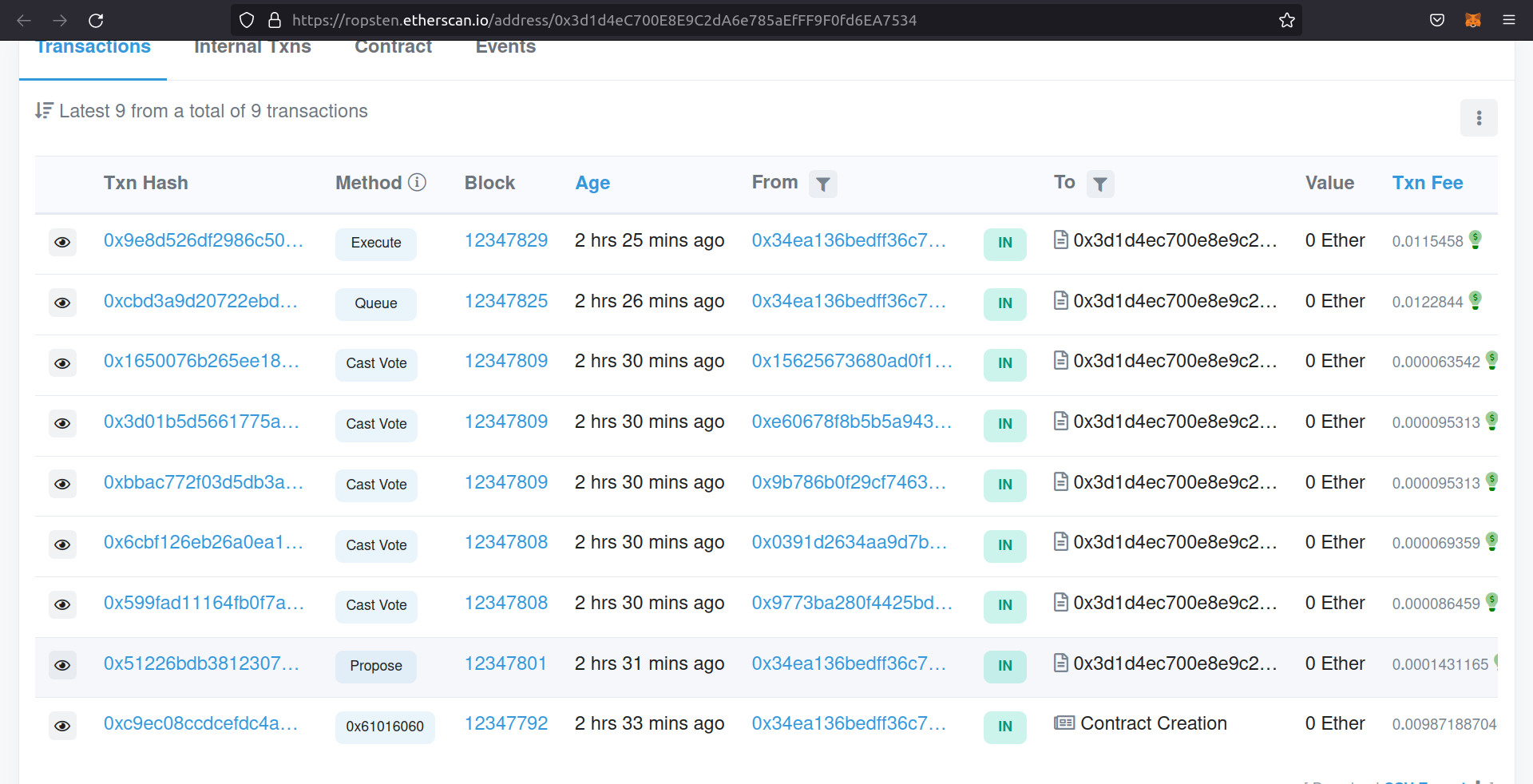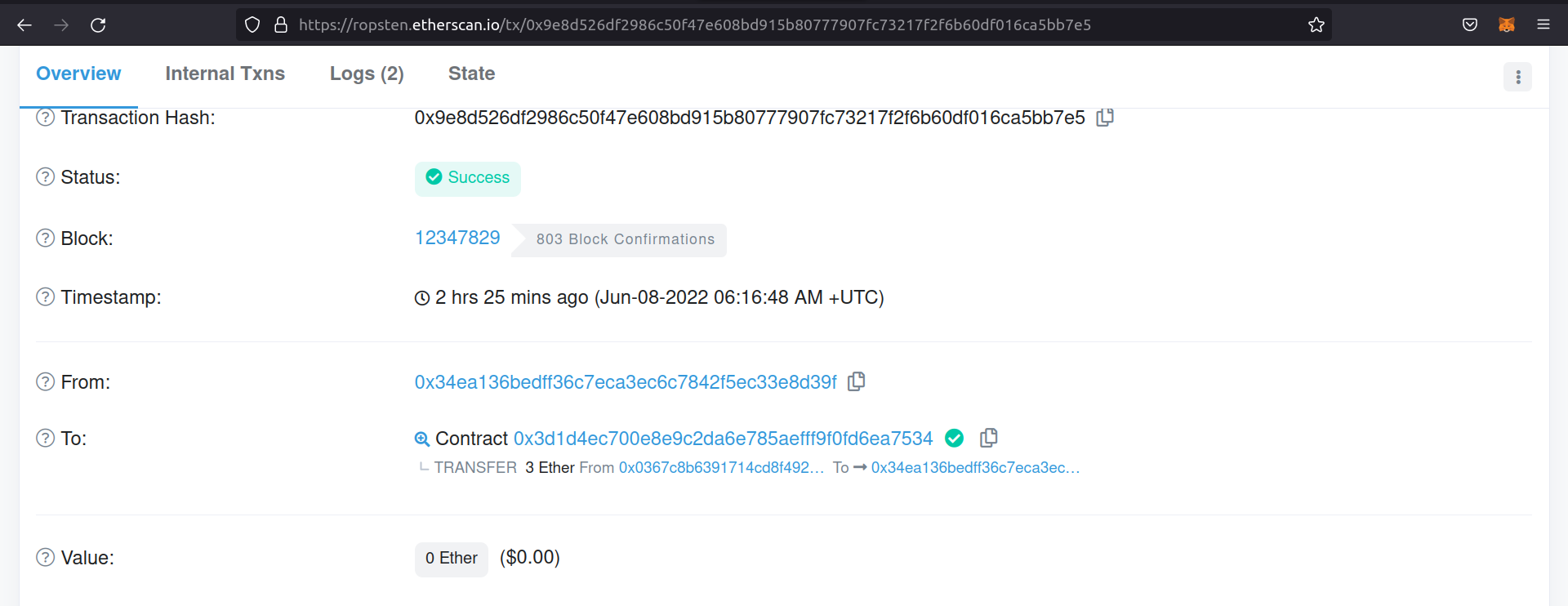- Contract deployed on ropsten test network at:
0x44BA04fC80D1f9D743957e8da52ecB3976F92b77
This contract deploys an ERC20 token with voting rights.
-
Name: "BlazeToken"
-
Symbol: "BLZ"
-
Decimals: 0
-
This token will be used to vote on proposals created in the DAO contract.
-
There is no initial supply, but the contract owner can call the mint() function to mint tokens to an address. It takes the address and the amount of tokens to mint as arguments.
-
Users would need to call delegate() function and pass their own address as argument in order to create a snapshot of their voting power, as only holding the tokens does not give an address the equivalent voting power.
- Contract deployed on ropsten test network at:
0x0367c8B6391714CD8F4924a909e1046534202D59
-
This contract will hold ether and ERC20 tokens and will be used to send ether or ERC20 tokens as donation to charities.
-
The members of the DAO can create a proposal where they can specify the receiving address and the amount of ether/ ERC20 token to send as donation.
-
If the DAO members pass in favor of the proposal, then the said amount will be sent to the charity address.
-
The TimeLock contract is given the ownership of this contract, so that the only way of moving funds out is by creating a proposal and passing it.
- Contract deployed on ropsten test network at:
0x68aEDA284369e5e985810B0190268932f958Ae2C
-
This contract is set as the owner of the Treasury contract.
-
It sets a minimum delay time(number of blocks), that a passed proposal has to wait before getting executed.
-
The DAO contract is set as the only PROPOSER, which means that only the DAO contract can suggest this contract to do a transaction through the Treasury contract.
-
The Null Address is set as the EXECUTOR, which gives each and every address the right to execute a passed proposal, given that it has waited out the proposed delay time.
- Contract deployed on ropsten test network at:
0x3d1d4eC700E8E9C2dA6e785aEfFF9F0fd6EA7534
-
This contract creates the DAO ecosystem in which an user can create a proposal and vote on it using the ERC20 BlazeToken.
-
Users can create a proposal, cancel it, vote on it, queue it and execute it.
-
The proposal stages are as follows:
Number Stage
0 Pending
1 Active
2 Canceled
3 Defeated
4 Succeeded
5 Queued
6 Expired
7 Executed
-
An user can interact with the proposal() function to create a new proposal, which returns the proposal id of the newly created proposal.
-
Users can interact with the castVote() function to cast their vote on a proposal. It takes 2 arguments, the proposal id and user's choice.
-
User has 3 choices when voting:
Choice Meaning
0 Against the proposal
1 For/ In favor of the proposal
2 Abstain
-
If the proposal passes, then any user can interact with the queue() function to queue the proposal for execution.
-
After that, when the delay period has passed, any user can interact with the execute() function which will execute the proposal and the funds will be sent to the charity.
- Created a proposal to send 3 ethers from the Treasury to an address.
- Voting was done and the proposal passed.
- Then it was queued for execution.
- After that, the proposal was executed and funds were successfully transferred from the Treasury contract.
This project demonstrates a basic Hardhat use case.
npx hardhat compile
npx hardhat clean
npx hardhat test
npx hardhat node
node scripts/sample-script.js
npx hardhat help
